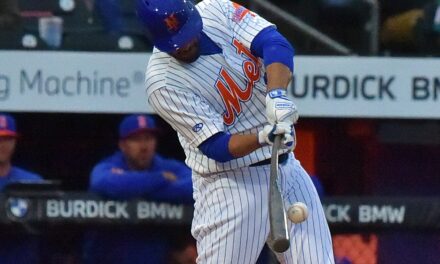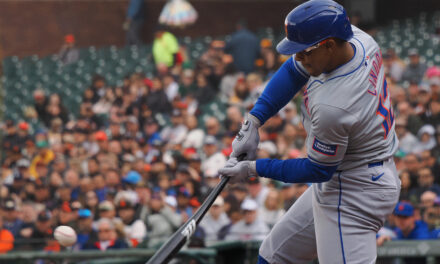I just finished reading Michael Shapiro’s very good baseball book, Bottom of the Ninth. This book focuses on the efforts of Branch Rickey, William Shea, and other would be baseball owners, and their efforts to get major league baseball (the owners) to allow major league expansion. A secondary, and probably unneeded storyline focuses on Yankee manager Casey Stengel’s final years with the Yankees. The book covers the time span from when the Dodgers and Giants moved west, until the owners agreed to expansion (1957-1961).
I learned quite a bit from this book, such as the huge role both Branch Rickey and William Shea had in running the Continental League. We all know that Mr. Shea played a big role in National League baseball returning to New York, but Shea really was a force in the Continental League as a whole. Also, the plan was to name the ball park in Flushing after Branch Rickey, but Rickey declined the honor, so it was passed onto Mr. Shea.
As much as we think owners are greedy and manipulative, the owners of 50 years ago were much worse. Shapiro’s book details some of the tricks used by both the National League and the American League to stop expansion.
Another interesting point is that in as early as 1958-1959, Walter O’Malley and Horace Stoneham wanted to charge their fans to watch baseball games on TV (pay per view). O’Malley in particular was against televising Dodger’s games, and in fact in the early years of the Dodgers being in Los Angeles only allowed 11 Dodgers games (those games against the Giants), to be televised.
If there is one critique I have of this book, it covers so much ground, that Mr. Shapiro cannot really get deep into the details.
I am a huge fan of baseball history, and I found this book very interesting. During this hot stove season, I hope to write some articles about the history of this great game. I also know from reading the comments of our readers on MMO that there are a lot of original Met fans out there. I think it would be really cool for those fans who were there in 1962, and before to share their thoughts about what New York was like when it was just an American league town, and also those feelings of happiness and relief they had when the Mets were born.














